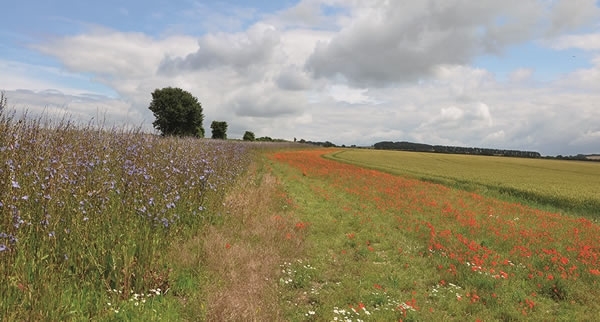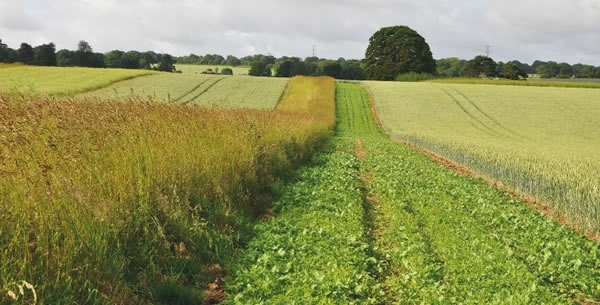
With the United Kingdom’s farming policy up for discussion this autumn, it is essential that we take stock of what works and what needs improvement. James Swyer explains why.
Whatever the outcome of our Brexit negotiations, it is certain that leaving the EU will release the UK from being bound by its Common Agricultural Policy (CAP). Freedom from CAP provides the opportunity to shape UK-focused agricultural policies, but also carries a risk that environmental support could wane.
Much of the environmental protection legislation in the UK derives from EU Directives, and there are concerns in some quarters that this protection may be lost after Brexit.
There is, however, an opportunity to encourage a thriving and sustainable farming sector, beneficial to both agriculture and wildlife simultaneously. We can only do this by ensuring that any new farming policy makes our future priorities easier to deliver.
CAP has provided many benefits to agriculture. In addition to guaranteeing food production across Europe, it has encouraged a successful farming sector. However, attempts to improve environmental performance have been challenging and often highly prescriptive requiring applicants to complete a great deal of paperwork and endure rigorous assessments.
As a result, applications to join environmental schemes from farmers in Britain have fallen and for many, it seems to be that the administrative burden is just too great. This isn’t a false perception or an excuse to point the finger at ‘EU red tape’, it is a reality that we must address if we want our agri-environment schemes to fulfil their potential; to get the most for wildlife in our farmed environment, we need farmers to participate.

A margin for error
We live this challenge every day at the Allerton Project. In fact, earlier this year we received the final outcome of our Natural England inspection. Spanning our six years of Higher Level Stewardship between 2010 and 2015 and a year of Entry Level Stewardship in 2016, the report came with a 21-page letter and a new 40-page agreement.
As a project that undertakes much of the research which supports the very agri-environment schemes in which we are enrolled, we are in a unique position. Few other farms, if any, work as closely with the policymakers responsible. Despite this, there were still five areas in which the assessors had deemed us to have fallen foul of their judgement. As alarming as this might sound, the tight scrutiny of the process and minutiae of the assessments makes it practically unavoidable.
In one instance, we claimed for 3.97 hectares (ha) of species rich grassland, but inspectors found just 3.96ha. In another, we were penalised for over-claiming the total area by less than 0.1%. With such low tolerance for miscalculation, human error or the many challenges that might disrupt a farmer’s best intentions, it is easy to see why many decide that it isn’t worth the hassle.
Rather than a punitive system, we feel it would be more sensible to allow a fixed percentage of variation, inform farmers of the breach and allow them to remedy it. Then, should the breach become persistent, action can be taken.
In the face of the downturn in enrolment, we must see the chance to reform and rewrite our farming policy as a golden opportunity to make the system more flexible and pragmatic. By reducing the burden of administration for both farmers and regulators we can improve the efficiency of the current system and make it more appealing to those managing our countryside. This should be the start of revitalising our schemes to encourage participation and provide more for wildlife and the environment.
Our vision for post-Brexit farming policy is built on three important beliefs – that any successful system must be farmer-led, work on a large scale and reward activity that actually generates positive environmental outcomes, be they species recovery, carbon storage or soil health.
By providing farmers with more choice and greater control, they can be more motivated to achieve their conservation goals alongside vital food production, resulting in better outcomes for all. This effect can be magnified by encouraging collaboration, which has already been shown to deliver better results than in isolated pockets of effort.
You can help us to propose a better farming policy post-Brexit
With your support, we can make a real difference to conservation policy in Britain. By getting our research into the hands of politicians and the public, we can keep conservation policy on track and make sure that we give a voice to those who are working hard to improve the future for wildlife in our countryside.
Donate here >